Antitrust and Consumer Protection
E-Briefs, News and Notes: February 2025
WELCOME to the FEBRUARY 2025 edition of E-Briefs, News and Notes.
The E-Brief Editors and Staff send all our readers a “heart” felt wish for a great February!
This edition has a variety of content:
In SECTION NEWS, we feature:
- MONTHLY SECTION MESSAGE:
- An update on the upcoming Celebrating Women in Competition Law to be held on March 6, 2025 in San Francisco. All are welcome to celebrate! Please register and attend!
- A View From the Floor reviewing highlights from the UCL Committee on the Third Annual Consumer and Unfair Competition Law Institute held on January 31, 2025 in Los Angeles.
- SECTION ANNOUNCEMENTS:
- Article Submission for the Section’s Competition journal is currently open!
- Nomination for the Antitrust Lawyer of the Year has been extended to February 19, 2025
- Applications for the Inclusion & Diversity Fellowship Program Are Due by February 28, 2025
- Join the Section’s Executive Committee – The Application Deadline is March 1, 2025.
- The California Lawyers Foundation is planning the first ever CLF Golf Tournament to take place on April 17, 2025.
E-BRIEFS features the following significant decisions to consider:
- First, in the Teradata case, after the District Court for the Northern District of California granted summary judgment for SAP, the Ninth Circuit reversed and remanded;
- Second, in a short decision, the Ninth Circuit affirmed summary judgment against three gasoline dealers who own Mobil-branded stations in southern California and who alleged that the prices of gasoline sold to them were not set in good faith;
- Third, the Sixth Circuit held that broadband internet service providers (BISPs) provided “telecommunications service” rather than “information service” and thus were not subject to the 1996 Telecommunications Act’s (TCA) net neutrality requirements;
- Fourth, the Central District of California denied Live Nation and Ticketmaster’s request to stay a private antitrust suit while the subsequent and substantively-related case brought by the Department of Justice and 39 state and district attorneys general proceeds;
- Fifth, an arbitration granted class certification to a class of direct purchasers of automatic card shufflers;
- Sixth, the District Court found that the indirect purchaser plaintiffs failed to establish commonality, given the variety contracts between the defendants and their customers, and denied a motion for class certification; and
- Seventh, in the Blue Cross Blue Shield Antitrust Litigation, after twelve years of litigation, defendants and a putative provider class agreed to injunctive relief and a $2.8 billion settlement.
The February E-BRIEFS celebrates its own “three-peat” with a mother (Cheryl Johnson) and daughter (Morgan Marmaro) both submitting E-Briefs.
AGENCY AND LEGISLATIVE REPORTS
- ENFORCEMENT AGENCY PRESS RELEASES highlight the enforcement activities of the Antitrust Division, DOJ, FTC, and California AG’s office. Reading the press release(s) is a quick way to keep on top of major developments.
Thanks to all the contributors to this edition. If you have any suggestions for improvement, or an interest in contributing to E-Briefs, please contact Editors Betsy Manifold (Manifold@whafh.com) and Caroline Corbitt (ccc@pritzkerlevine.com).
Section News
Monthly Section Message
Dear Section Members:
The idea for “Celebrating Women” was born in 2016 in La Jolla, California. We were attending an Antitrust and Consumer Protection Section Executive Committee meeting and were grumbling about our shared opinion that most of the women’s events we attended focused on the negative aspects of the practice and left everyone feeling depressed. We knew women were (and are) doing amazing work in the antitrust bar and wanted to hear their stories, learn from them, and celebrate their achievements. And just like that, the conversation resulted in “Celebrating Women in Competition Law in California,” an annual panel presentation and networking event for women and men.
The first event was held on June 28, 2017, and featured a panel of female practitioners from the plaintiff side, defense side, in-house, Federal Trade Commission, United States Department of Justice, and California Department of Justice, and was moderated by Judge Susan Y. Illston. Feedback was uniformly positive that we needed an event like this – an event that shines light on the amazing work women are doing in the field of competition law and provides networking opportunities.
We love this event and are thrilled that it has grown in popularity and sells out every year. We are delighted that men come to the event to celebrate women and learn how to support them. We cannot wait to see you at the Eighth Annual event on March 6, 2025. This year’s event will feature an amazing panel of antitrust lawyers in a conversation moderated by Judge Trina L. Thompson of the Northern District of California. You can read more about it here and register now.
We look forward to seeing you there!
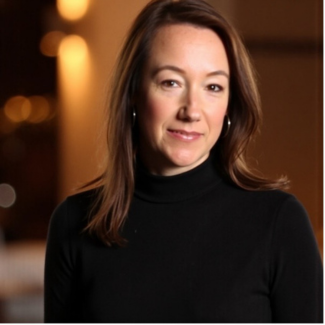
Jill M. Manning, The Manning Law Firm

Kate Patchen, Covington & Burling, LLP
A View From the Floor : Third Annual Consumer and Unfair Competition Law Institute
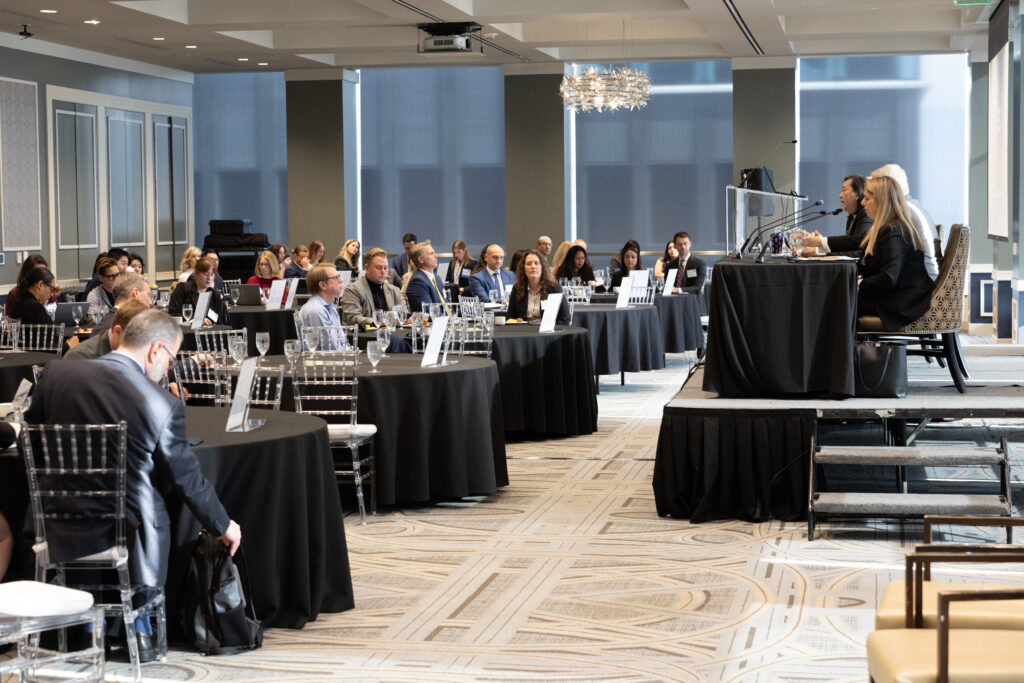
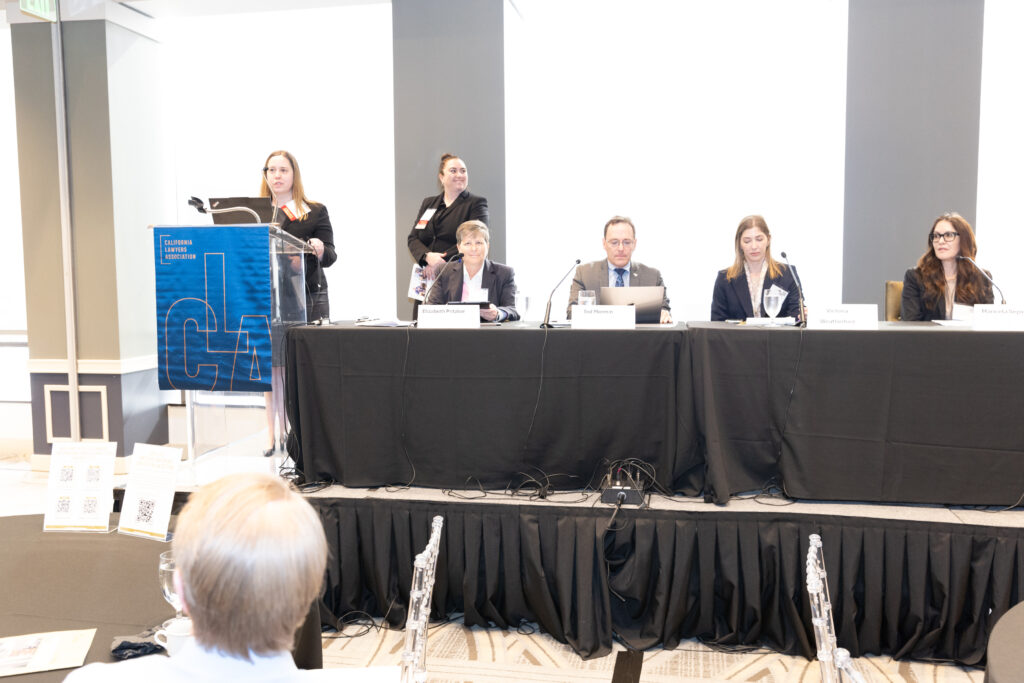
The Section was delighted to host the Third Annual Consumer and Unfair Competition Law Institute held on January 31, 2025 in Los Angeles. The UCL Committee’s signature event, the Institute brings together thought leaders, top enforcement officials, and leading practitioners to discuss important topics in unfair and competition law.
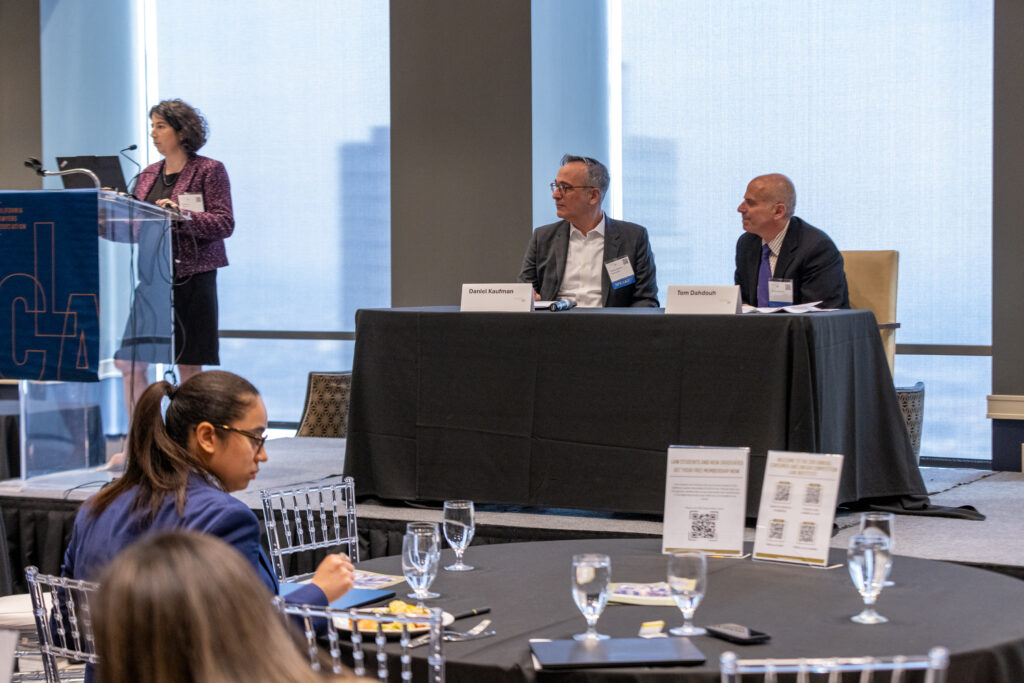

This year the Keynote Speaker was Tom Dahdouh, former Attorney Advisor to then FTC Chair Lina Khan. Mr. Dahdouh engaged in a spirited “Fireside Chat” with Daniel Kaufman (Partner, Baker Hostetler). Attendees enjoyed this candid discussion of the innovations undertaken in the last few years by the FTC’s Bureau of Competition. The Institute also hosted four thought-provoking panels.
The Institute opened with a fantastic and much anticipated Judges Panel. Christina Tusan (Tusan Law) moderated a Q&A with the Hon. David S. Cunningham (LA County Superior, Complex Dept), Hon. Michael W. Fitzgerald (CD Cal), and Hon. Jacqueline H. Nguyen (Ninth Circuit). Topics of discussion included case management, best practices, and important cases.
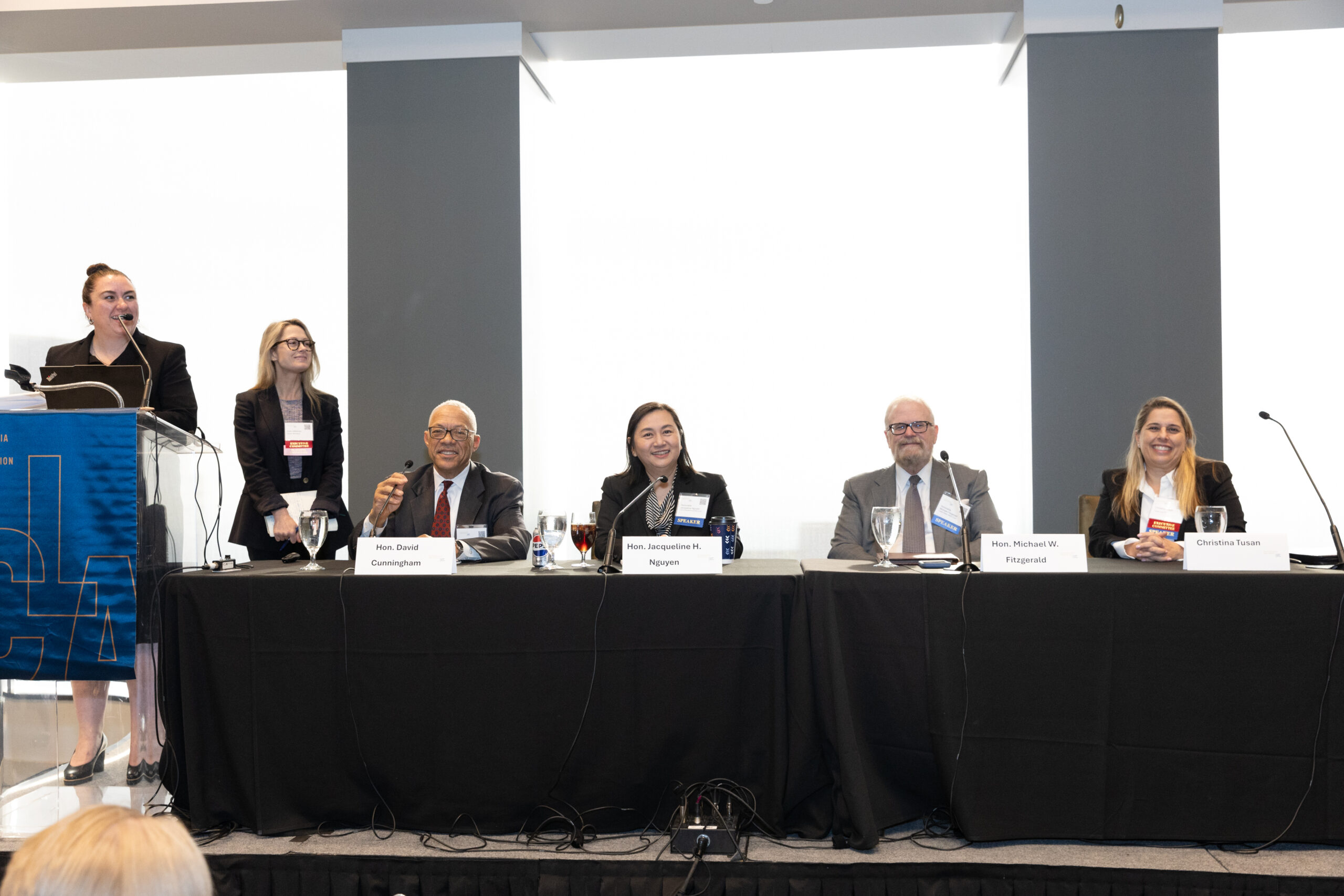
Following the Judge’s Panel, a panel of enforcers, academics and private practitioners discussed recent developments and provided critical insight into a shifting legal landscape. The Recent Developments in Consumer/UCL panel, moderated by Maricela Segura (FTC) included: Nick Akers (AGA, CA DOJ); Ted Mermin (UC Berkley); Elizabeth Pritzker (Pritzker Levine); and Victoria Weatherford (BakerHostetler).
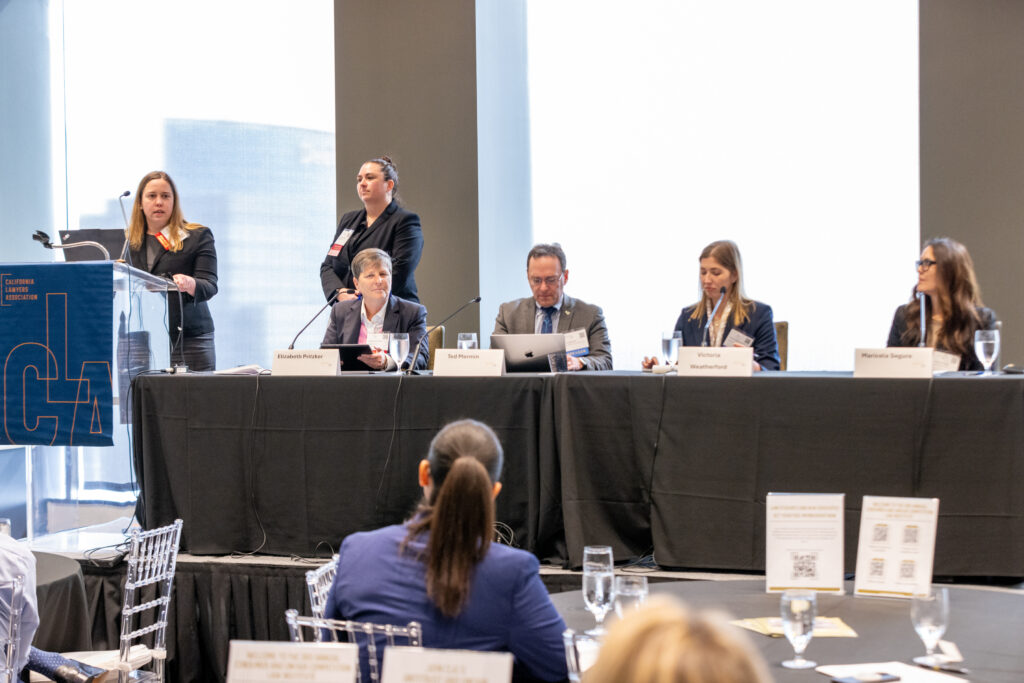
After the Fireside Chat and Networking Lunch, the Artificial Intelligence and Consumer Protection panel discussed the hot topic of AI threats to consumers and potential steps that businesses may consider to avoid harming consumers. This impressive panel, moderated by Anne K. Davis (Bleichmar Fonti & Auld LLP) included: Dr. Jennifer King (Stanford Fellow); Daniel M. Goldberg (Data Strategy, Privacy and Security Group).
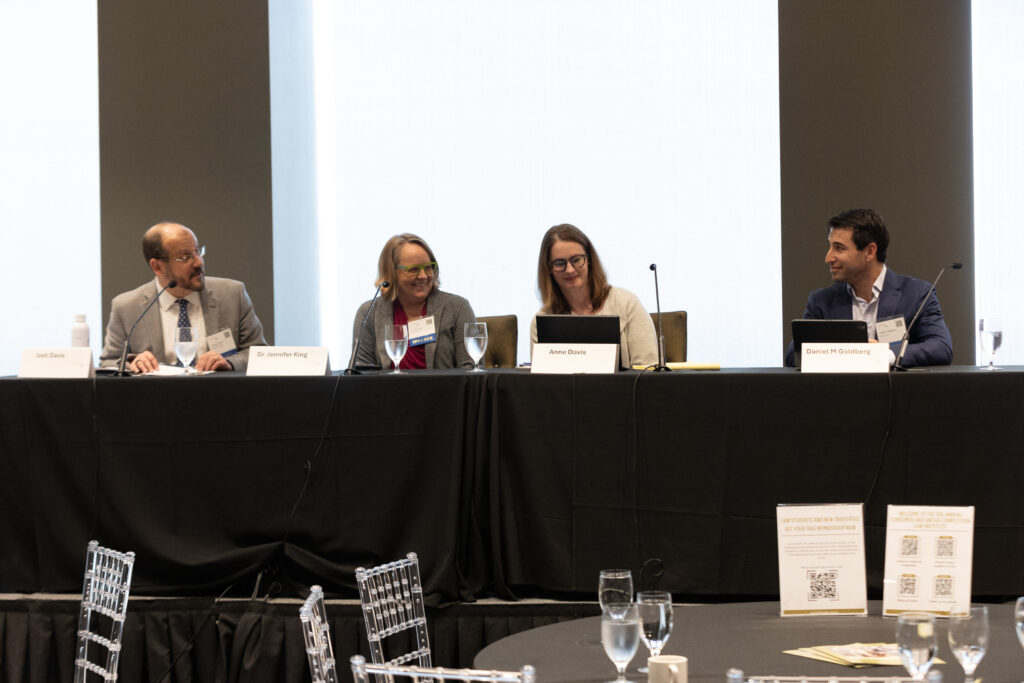
The Institute Sessions concluded with the popular Ethics Session: Tech Savvy, Ethics in the Age of Technology. Wendy Patrick (Deputy DA, San Diego) walked the attendees through various scenarios and highlighted the ethical rules to consider.
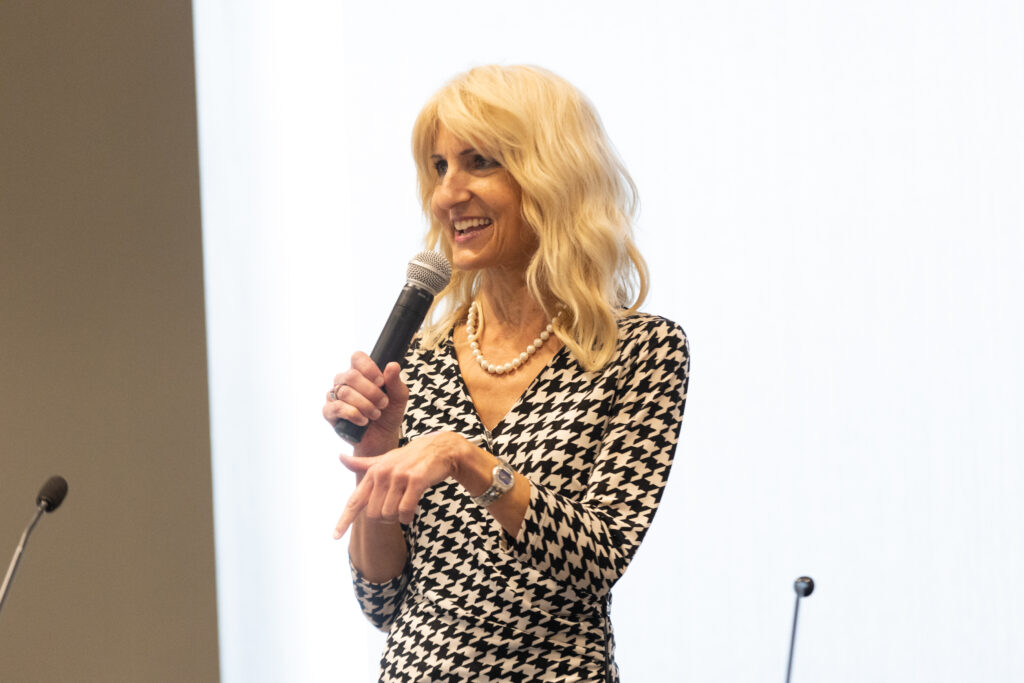
Following the 2025 Institute, the Section hosted a reception to celebrate the Consumer and Unfair Competition Law Award. The award recognized outstanding achievements in the practice of consumer and unfair competition law. The well-deserving 2025 recipients were:
- Christina Tusan, formerly of the LA City Attorney’s Office
- William Pletcher, formerly of the LA City Attorney’s Office
- Rebecca Morse, formerly of the LA City Attorney’s Office
- Miguel Ruiz, formerly of the LA City Attorney’s Office
- Gina Lee of the LA City Attorney’s Office
- Louisa Kirakosian of the LA City Attorney’s Office
- Sarah Preis of the Consumer Financial Protection Bureau
- Jesse Stewart of the Consumer Financial Protection Bureau
- Nathan Dimock of the Consumer Financial Protection Bureau
- Lynne Weaver of the North Carolina Attorney General’s Office
- Evan Romanoff of the Minnesota Attorney General’s Office
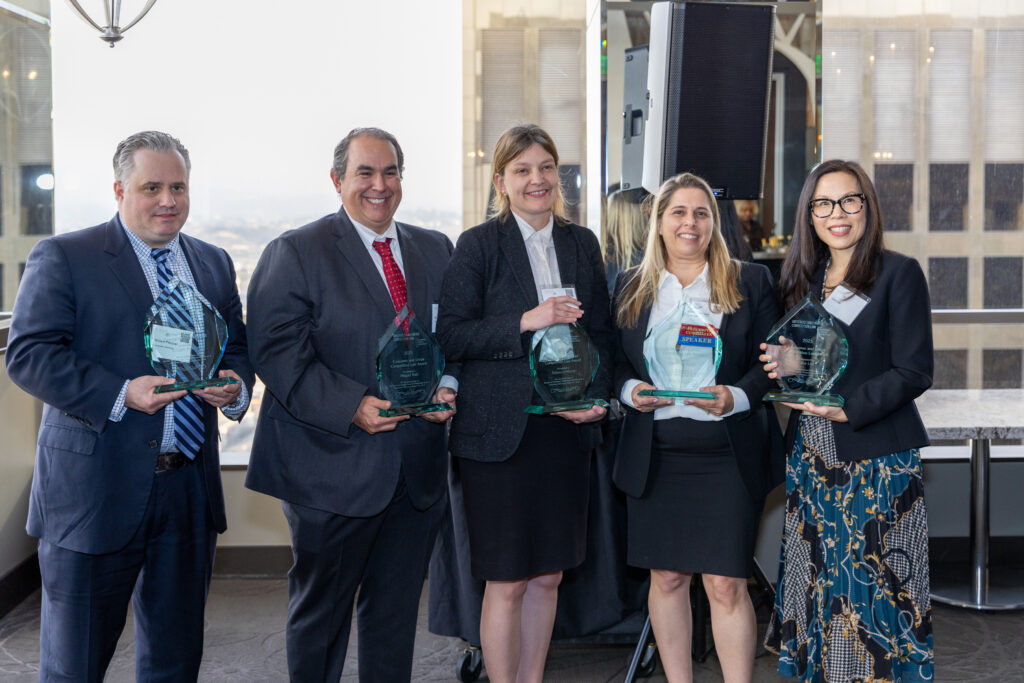

The recipients prosecuted CFPB, et al. v. Consumer Advocacy Center Inc., et al., in the Central District of California. This enforcement action was noteworthy not only for the monetary judgment but also because this is the first known example of California consumer protection prosecutors, along with the CFPB, using the UCL in conjunction with other statutes to access the CFPB’s victims’ relief fund to distribute restitution to all known victims.
Section Announcements
Submission for Competition is Open!
Competition is a semi-annual law journal published by the Antitrust and Consumer Protection Section. The journal includes scholarly and practice-oriented articles relating to current issues and developments in the areas of antitrust, unfair competition, and trade regulation. Competition invites articles from attorneys, judges, economists, academics, and others who have an interest in antitrust, unfair competition, and trade regulation issues. A free annual subscription is a benefit of Section membership.
Have an article submission? Submissions for our journal is currently open!
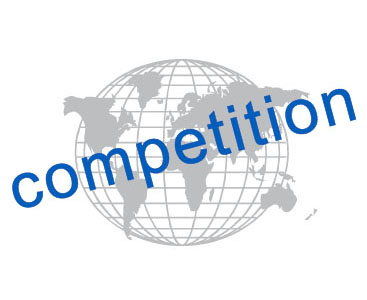
Antitrust Lawyer of the Year
Nomination Deadline extended to February 19, 2025
Each year, the Antitrust and Consumer Protection Section honors an Antitrust Lawyer of the Year at a dinner that follows the annual Golden State Institute. The Antitrust Lawyer of the Year award acknowledges that attorney’s achievements, contributions, and advancements in the field of Antitrust and Consumer Protection Section law. Nominations have been extended to February 19, 2025. Self-nominations are accepted.
Please also mark your calendar for the 2025 Golden State Institute and Antitrust Lawyer of the Year dinner, which will be held on October 23, 2025 at the Hyatt Regency in San Francisco.
Application of the Inclusion & Diversity Fellowship Program Are Due by February 28, 2025
The Inclusion & Diversity Fellowship program is a joint program managed by the California Lawyers Foundation and the Section. Both are dedicated to increasing the participation and visibility of diverse and underrepresented lawyers in the practice of Antitrust and Consumer Protection Section law. The goal of the fellowship is to provide career opportunities for students from underrepresented groups in the legal profession, increase interest in Antitrust and Consumer Protection Section law, and promote the work of the Section.
Applications are due on February 28, 2025. Learn more and apply today!
Join the Section’s Executive Committee – Application Deadline is March 1, 2025
Our Executive Committee is seeking new members for our next term. Joining the Executive Committee opens new doors to your CLA experience, including your professional network, your expertise in your field of law, and your voice in our volunteer-driven organization. Executive Committees are made up of diverse groups of practitioners from all parts of California with all sorts of different professional backgrounds, and we would love for you to be a part of it. Application deadline is March 1, 2025. Get started here >>
California Lawyers Foundation Classic Fairways to Justice Golf Tournament – April 17, 2025
The California Lawyers Foundation is hosting a first-of-its-kind mentorship and charity golf tournament at the iconic Pelican Hill Golf Club in Newport Coast, California, on April 17, 2025.
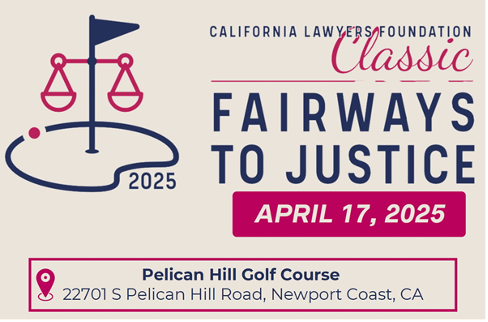
Other Events
The Section also highlights the following upcoming antitrust events:
The UC Irvine Law Competition, Antitrust Law and Innovation Forum CALIF) will host leading scholars and practitioners to discuss Pharmaceutical Markets. The event will be held on Feb 21, 2025 (9:15 AM – 3:45 PM PST (GMT-8) at
EDU 1111, 401 E Peltason Dr., Irvine, CA 92697. Attendance is free. Learn more about the program and register today.
e-Briefs
Teradata Corp., v. SAP SE et al., No. 3:18-cv-03670-WHO, 2024 DJDAR 11476 (9th Cir. Dec. 19, 2024)
By Morgan Marmaro

By Morgan Marmaro
Overview. In 2018, Teradata Corp. (“Teradata”) sued SAP SE (“SAP”) alleging that SAP violated Section 1 of the Sherman Act and California Uniform Trade Secrets Act by: (1) unlawfully tied sales of its business-management software to sales of its back-end database engine; and (2) misappropriated Teradata’s trade secrets. After the District Court for the Northern District of California’s granted SAP summary judgment, the Ninth Circuit reversed and remanded. Teradata Corp., v. SAP SE et al., No. 3:18-cv-03670-WHO, at *4, *6 (9th Cir. Dec. 19, 2024).
Factual Background. SAP sells enterprise resource planning (“ERP”) software, helping companies manage data for day-to-day business activities that operate on transactional databases. Id. at *4. Teradata sells enterprise data and warehousing (“EDW”) software—a type of analytical database designed to integrate, store, and restructure data. Id. at *5.
In 2008, SAP and Teradata created a joint venture (JV) to integrate SAP’s applications and Teradata’s computing architecture, for which they signed mutual non-disclosure and software development cooperation agreements for IP protection. Id. To resolve any JV technical difficulties, Teradata provided its proprietary “batched merge” method in a document labeled “Teradata Confidential.” Id. Concurrently, SAP developed and released its own EDW product. It then terminated the JV and stopped supporting, selling, and marketing it. Id. at *5–6. SAP later released an updated ERP software and combined it with its EDW sales offering. Id. at *6.
In 2018, Teradata filed suit in the Northern California District Court. It provided an economics expert report from Dr. John Asker on market definition and power. SAP moved to exclude portions of the expert testimony and motioned for summary judgment. The District Court excluded Dr. Asker’s testimony on the grounds that his opinion was contradicted by undisputed facts and his methodology unreliable. Id. at *6–7. The Court then granted SAP summary judgment.
Legal Analysis. The Ninth Circuit reversed and remanded, finding that the District Court had abused its discretion in excluding Dr. Asker’s expert opinion and granting summary judgment, specifically taking issue with the District Court’s finding that Dr. Asker’s use of an aggregate diversion ratio analysis and failure to create a bright line definition for market definition was unreasonable. Id. at *11–13.
The District Court excluded Dr. Asker’s “large enterprises” analysis from his tying-market definition (“core ERP products for large enterprises”) for failure to identify a “clear line separating [large] companies or the products they buy from others.” Id. at *13. The Ninth Circuit found the exclusion an abuse of discretion, finding the use of qualitative methods and corroborating quantitative tests to be “reasonable methodologies in defining the relevant markets.” Id. The Circuit referenced Times-Picayune and Philadelphia National Bank, when explaining that an antitrust plaintiff need not specify a market by “precise ‘metes and bounds’” and some “fuzziness” is “inherent” in any market delineations—finding that failure to define a market within metes and bounds is not a sufficient basis for rejection. Id. at *13–15.
The District Court excluded Dr. Asker’s tied market definition (“EDW products with [online analytical processing] capabilities for large enterprises”) taking issue with the underlying data used in an aggregate diversion ratio analysis for its failure to measure customer responses to price changes. Id. at *15–17. In contrast, the Ninth Circuit found Dr. Asker’s methodology did not fall “outside the range where experts might reasonably differ”—rebuking the District Court’s rejection of aggregate diversion ratio analysis as a market-definition tool despite the test merely corroborating the primary qualitative analysis foundation. Id.; id. at *17–19 (“More fundamentally, the District Court abused its discretion by narrowly focusing on Asker’s aggregate diversion ratio methodology as its sole justification for exclu[sion]”.).The Ninth Circuit also held that a hypothetical monopolist test only requires showing likely and not actual diversion in customer responses to price changes, and that Dr. Asker’s approach is sufficient to satisfy Rule 702. Id. at *17–19.
The Ninth Circuit emphasized that experts may extrapolate harm to competition on a market-wide level based on the volume of tied products, so Dr. Asker’s extrapolations were reasonable. Id. at *21–22. The Ninth Circuit reversed summary judgment and remanded for analysis under both per se and rule of reason while including Dr. Asker’s previously excluded testimony. Id. at *26–27. The Court also noted the case was “more akin to standard contractual tie cases” as the tying and tied products were not technologically or physically integrated—determining it had “no basis for expanding Epic Game’s narrow exception . . . to cover software markets generally.” Id. at *25–26.
Finally, the Ninth Circuit found that disputed issues of material fact precluded summary judgment on the trade secret claims on whether Teradata failed to designate its batched merge technique as confidential and whether SAP had a contractual right to use the technique in its own products. Id. at *29.
9th Cir. Affirms Summary Judgment Against Gasoline Dealers Who Alleged Gasoline Prices Were Not Set in Good Faith
By Wesley Sweger

By Wesley Sweger
Windy Cove, Inc. v. Circle K Stores Inc., 121 F.4th 1355 (9th Cir. 2024)
In a short decision authored by Judge Hurwitz, the Ninth Circuit affirmed summary judgment against three gasoline dealers who own Mobil-branded stations in southern California (“Plaintiffs”) and who alleged that the prices of gasoline sold to them by Circle K under an exclusive distributorship agreement were not set in good faith.
Plaintiffs entered into a 15-year exclusive fuel supply agreement with Circle K as part of the agreement under which Plaintiffs purchased their gas stations from ExxonMobil. California Commercial Code section 2305(2) provides that when a contract grants a party the power to fix the price, the party must do so in good faith. The Uniform Commercial Code (“UCC”) includes a “safe harbor” provision, which states that “in the normal case a posted price or a future seller’s or buyer’s given price, price in effect, market price, or the like satisfies the good faith requirement.” 121 F.4th at 1357. The parties agreed that the agreement between them was a “price in effect” contract. Thus, to establish an absence of good faith, Plaintiffs were required to show that this was not “the normal case.” What constitutes a “normal case” is undefined under the UCC, but the majority rule under the case law suggests that the safe harbor’s presumption can only be rebutted by evidence that the price was either (1) discriminatory or (2) not commercially reasonable. Because Plaintiffs did not assert price discrimination, the only issue was whether Circle K’s prices were commercially unreasonable.
Plaintiffs argued that Circle K’s prices were not commercially reasonable because (1) Circle K relied upon a non-industry-standard pricing formula to determine the prices, and (2) its prices were higher than that of another wholesaler. The court held that commercial reasonableness based on the actual price charged, not on how that price was calculated. With regard to Circle K’s prices being high, the majority rule is that a price “within the range” of those charged by the seller’s competitors is commercially reasonable. Id. at 1358. The question then turned to: Who are Circle K’s competitors? Plaintiffs argued that Circle K is only in competition with other wholesale distributors, and not refiners. Circle K argued that it competes with all suppliers of gasoline to retail dealers, including refiners. Court found that, because gasoline is a fungible commodity, Circle K is effectively in competition with everyone who sells gasoline to dealers, including refiners. After including refiners within Circle K’s competitors, the court found it undisputed that Circle K’s prices were lower than at least one refiner, and therefore Circle K’s prices were “in the range” of those charged by its competitors. As such, the court found Plaintiffs failed to rebut the presumption that Circle K set its prices in good faith.
In re MCP No. 185,124 F.4th 993 (6th Cir. Jan. 2, 2025)
By Cheryl Johnson
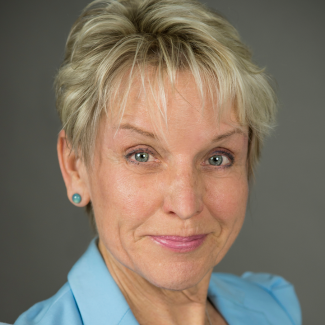
By Cheryl Johnson
The Sixth Circuit held that broadband internet service providers (BISPs) provided “telecommunications service” rather than “information service” and thus were not subject to the 1996 Telecommunications Act’s (TCA) net neutrality requirements. 124 F.4th 993, 998. The net neutrality rules would prohibit BISPs who connect “end users” (consumers) to “edge providers” (like websites, social media, and search engines) via various transmission networks, from controlling end users’ Internet access or speed. Id. at 997-98.
Under the 1996 Telecommunications Act (TCA), Congress adopted a light oversight (“hands-off”) approach to providers of “information service,” but providers of “telecommunications service” were subject to a heavier “common carrier” type regulation that included net neutrality restrictions. Id. at 997, 999. Conflicting FCC orders deeming BISP service as “telecommunications service” in 2015 but as “information service” in 2018 were reviewed by the D.C. Circuit and both found “permissible” under the Chevron doctrine. Id. at 997, 999-1000.
In 2024, the Biden-era FCC “resurrected the FCC’s heavy-handed regulatory regime” with an order that BISPs provided “telecommunications service” subject to net neutrality rules. Id. at 997. That 2024 order “undoes the order issued during the first Trump administration, which undid the order during the Obama administration, which undid orders issues during the Bush and Clinton administrations.” Id. at 1000. Due to SCOTUS’ rejection of the Chevron doctrine in Loper Bright Enterprises, the Sixth Circuit had to classify BISPs’ services under the best interpretation of the TCA. Id. at 997.
Under the TCA, the question is whether BISPs in offering consumers internet access are “merely a conduit for data transmission (a so-called ‘dumb pipe’)” and thus offer telecommunications service, or whether instead, they “offer consumers the capability to acquire, store, and utilize data” and thus offer consumers an “information service.” Id. at 1001. The court sided with the latter, persuaded that the plain language of the Act, history and Congressional intent all supported this result. Id. at 1004.
Telecommunications was defined in the TCA as the transmission of information without change in form or content of the information, whereas information service was defined as the “offering the capability” for generating or “making available information via telecommunications.” Id. at 1002. By connecting consumers to edge providers which are undisputably information services, the BISPs “plainly” provide a user with the capability to retrieve edge provider information. Id. at 1003-04. Also, Congress in enacting the TCA emphasized the importance of deregulating the Internet, so it would be “strange” to shackle Internet access providers with common carrier regulations. Id. at 1004. Finally, a predecessor regulatory system, an earlier FCC report and cable service order also convinced the Court that BISPs provide information services. Id. at 1005-07. But the FCC challenged the rationale, arguing it would apply in equal force to telephone service which was the “paradigmatic example of telephone communications.” Id. at 1007. The court disagreed, ruling that “information” as used in the TCA does not refer to a phone calls with friends, but rather “an interaction with data stored on a computer.” Moreover, the Court emphasized that the “core standalone offering” of telephone service was the transparent transmission of telecommunications.” Id. at 1007-08.
Heckman v. Live Nation: Class Action Against Live Nation Will Proceed Over Live Nation’s Request to Stay Pending Resolution of DOJ Case
By Cora Allen

By Cora Allen
On January 6, 2025, U.S. District Judge George H. Wu of the Central District of California denied Live Nation and Ticketmaster’s request to stay the private antitrust suit Heckman v. Live Nation while the subsequent and substantively-related case brought by the Department of Justice and 39 state and district attorneys general—United States v. Live Nation—proceeds.
BACKGROUND
The dispute stems from a pair of cases alleging that, following their 2010 merger, Live Nation and Ticketmaster engaged in pervasive anticompetitive practices in violations of Sections 1 and 2 of the Sherman Act.
The private class action Heckman v. Live Nation was brought in the District Court for the Central District of California in 2022 by a putative class of consumers who claimed to have paid supracompetitive fees on ticket purchases from Ticketmaster’s online platforms. Almost immediately, Defendants moved to compel arbitration based on an arbitration agreement in their terms of use. While ultimately losing on the issue, Defendants managed to delay the case from moving past this issue for over two years, with their appeal to the Ninth Circuit finally resolved in late 2024.
Meanwhile, on May 23, 2024, the DOJ and 39 state and district attorneys general filed a similar antitrust action against Live Nation and Ticketmaster in the District Court for the Southern District of New York. By the time the arbitration issue was resolved in the private case, discovery was already underway in the government action.
DEFENDANTS’ STAY REQUEST
As a result of the posture of these two cases, Live Nation and Ticketmaster argued that the private case—while technically the first filed, was less advanced than the government action and should be stayed under the doctrine of federal comity. Specifically, Defendants urged the court that an exception to the “first to file” rule was warranted.
Under the first to file rule, “when cases involving the same parties and issues have been filed in two different districts, the second district court has discretion to transfer, stay, or dismiss the second case in the interest of efficiency and judicial economy.” Cedars-Sinai Med. Ctr. v. Shalala, 125 F.3d 765, 769 (9th Cir. 1997). “A court may also relax the ‘first to file’ rule if the balance of convenience weighs in favor of the later-filed action.” Id.
Live Nation and Ticketmaster argued that in this case the “balance of convenience” weighed in favor of a stay of the private case because (i) the DOJ action was more “advanced” than the private action; and (ii) a stay would advance judicial economy, avoid conflicting rulings, and prevent duplicative recovery.
DENIAL OF STAY
The court disagreed, finding that both the federal comity doctrine and several other practical considerations weighed against staying the case. Specifically:
- Chronology of the actions: The court found the government action was not so advanced as to warrant an exception to the first to file rule. It noted that the government action was “still in a relatively early stage” with discovery open until October 2025, depositions not yet started, and motions to dismiss not yet heard or decided. There simply was not “a significant enough gulf” between the cases to dispense with the first to file rule as Defendants asked.
- Similarity of the parties: While noting a substantial similarity between parties, the court did not find this warranted a stay because “significant claims” would still remain in the private case regardless of the outcome of the government action. It also noted Defendants had “not even attempted to address the prejudice [to private plaintiffs] that might result from a stay.”
- Similarity of the claims: While all parties acknowledged the actions were substantially similar, the court found this was “really a matter best addressed through transfer, not a stay.”
- Other considerations: The court pointed to three additional considerations that weighed against a stay. First, the court was “unable to assent to the suggestion” that plaintiffs should be forced to have their claims put on hold “indefinitely” when the Defendants’ own unconscionable arbitration clause was the initial reason for delay. Second, because of a forum selection clause in Defendants’ terms of use, the court found “the only venue where Plaintiffs could bring their antitrust claims is here.” Finally, since neither the DOJ nor any state attorney general had weighed in on the stay, the court concluded that they seemed not to object to the private case continuing on.
Based on all these reasons, the court found that staying the private action for “some unidentified time or some unidentified event” in the government action was not appropriate.
THE CASE CONTINUES
Only a few weeks after denying Defendants request for a stay, the court ordered Defendants on January 22 to begin re-producing to private plaintiffs certain materials already produced in the government action.
Class Certification Granted to Direct Purchasers in Recent Arbitration Decision
By Lillian Grinnell

By Lillian Grinnell
In a recent arbitration decision regarding an antitrust class action – labeled as a “Class Determination Award” – the arbitrator in Mohawk Gaming Enterprises v. Light & Wonder, Inc. et al, Case No. 01-20-0015-6196, granted class certification to a class of direct purchasers of automatic card shufflers.
This arbitration concerned allegations that the respondents Light & Wonder and L&W Gaming, Inc. illegally monopolized the market of automatic card shufflers in violation of Sections 2 and 3 of the Sherman Act, particularly by fraudulently procuring patents and then using said patents as the basis for sham claims of patent infringement against potential competitors and new entrants to the market, foreclosing competition. The respondents were left free to set inflated prices for automatic card shufflers without concern of being undercut by others or losing market share.
In opposing class certification, respondents argued that the class did not meet the “substantial similarity” requirement of AAA Class Rule 4(a)(6). According to Respondents, the claimant and putative class representative, Mohawk, did not prove that the single arbitration clause at issue here was reflected in agreements by each class member. Respondents pointed to Lamps Plus v. Varela, 587 U.S. 176 (2019), where the Supreme Court had held that a class representative could not arbitrate claims on behalf of an employee class because the representative’s own arbitration agreement did not permit class arbitration. But as the arbitrator, John Wilkinson, pointed out, this decision did not deal with absent class members. And in larger cases that could involve thousands of arbitration contracts, for example, adopting this kind of rule could cause the process to grind to a complete halt so as to become entirely ineffective.
The Respondents also argued that some of the arbitration clauses of certain absent class members differed from the arbitration clause of the class representative. For example, there were differing qualifications of arbitrators and different required licenses. But Arbitrator Wilkinson found that these differences were too narrow to make any difference, and that absent class members had the protection of being able to opt out of the class, as outlined in Phillips Petroleum Co. v. Shutts, 472 U.S. 797, 810-11 (1985).
District Court Denies Class Certification to Indirect Plaintiff Purchaser Class in Miami Products & Chemical Co. v. Olin Corporation et al., Case No. 1:19-CV-00385 EAW (W.D.N.Y. December 16, 2024) (unpublished)
By David Lerch

By David Lerch
Indirect Purchaser Plaintiffs (IPPs) Tripp Plating Works, Inc. and Finch Paper, LLC alleged that Defendants Olin Corporation, K.A. Steel Chemicals, Inc., Occidental Chemical Corporation, Westlake Chemical Corporation, Shintech Incorporated, and Formosa Plastics Corporation, U.S.A. (Defendants) conspired to fix the price of caustic soda (used to unblock drains, clean ovens, and make soap). The District Court previously denied a motion for class certification by Direct Purchaser Plaintiffs (DPPs). The Court relied upon its prior order to deny a motion for class certification by the IPPs, finding that they failed to establish commonality, given the variety of contracts between the Defendants and their customers, and the failure of the expert witnesses to account for the variety in those contracts.
Daubert Issues at Class Certification
The District Court noted that“[t]he Supreme Court has not definitively ruled on the extent to which a district court must undertake a Daubert analysis at the class certification stage,” but it has “offered limited dicta suggesting that a Daubert analysis may be required at least in some circumstances,” citing In re U.S. Foodservice Inc. Pricing Litig., 729 F.3d 108, 129 (2d Cir. 2013), and also noted that courts in the Second Circuit “regularly ‘subject expert testimony to Daubert’s rigorous standards insofar as that testimony is relevant to the Rule 23 class certification analysis,’” citing Bowling v. Johnson & Johnson, No. 17 Civ. 3982 (AJN), 2019 WL 1760162, at *7 (S.D.N.Y. Apr. 22, 2019) (quoting Scott v. Chipotle Mexican Grill, Inc., 315 F.R.D. 33, 55 (S.D.N.Y. 2016)) (Order at 12). The Court relied in part on an expert opinion (from John Johnson IV, Ph.D.) to resolve the IPPs’ class certification motion and so it was necessary for the Court to determine the admissibility of Dr. Johnson’s opinions. In its analysis pertaining to the DPPs, the Court already considered and rejected the argument that Dr. Johnson’s use of spot export prices rendered the analysis and testimony unreliable (Order at 13). The Court concluded that Dr. Johnson explained his methodology in a way that the Court found both reasonable and persuasive and that nothing in IPPs’ submissions caused the Court to reconsider its prior finding. Id.
Predominance
The District Court noted that in Comcast v. Behrend, 569 U.S. 27 (2013) the Supreme Court had explained that at the class certification stage, as at trial, any model supporting a plaintiff’s damages case must be consistent with its liability case, particularly with respect to alleged anticompetitive effects and be capable of measuring these damages on a class wide basis, citing Passman v. Peloton Interactive, Inc., 671 F. Supp. 3d 417, 432 (S.D.N.Y. 2023) (“The Supreme Court in Comcast . . . held that Rule 23(b)(3) requires that the proposed methodology for calculating damages be consistent with the class’s theory of liability and capable of measuring these damages on a class wide basis.”) (Order at 15).
IPPs’ expert Dr. Macartney opined, among other things, that: (1) common evidence demonstrates that the structure of the caustic soda industry is conducive to anticompetitive behavior; (2) common evidence and methods demonstrate that Defendants engaged in collusive behavior that artificially increased the price of caustic soda; and (3) there is a common, reliable standard economic methodology that may be used to calculate damages on a class wide basis, and by applying that methodology, estimated class-wide damages were $155 million for the state antitrust class and $712 million in revenue, $355 million in gross profit, and $348 million in net profit for the unjust enrichment class (Order at 5). The Court stated that Dr. Macartney’s model purported to show an overcharge of 11.61% for all of Defendants’ customers and a 16.37% overcharge for distributor customers, and Dr. Macartney’s regression model provided an estimate of passthrough at a rate of 81% (Order at 6).
Defendants’ expert, Dr. Johnson, provided an expert report arguing that Dr. Macartney’s: (1) assessment of the impact of Defendants’ price increase announcements was divorced from economic evidence, in part because pricing for caustic soda is individually negotiated between each supplier and distributor, and the pricing mechanisms and terms vary substantially across distributors, across Defendants, and over time; (2) overcharge regression fails to account for global supply and demand conditions that impact the domestic price of caustic soda; (3) overcharge regression improperly calculates an average overcharge for distributor and non-distributor purchasers, instead of customer-specific overcharges; (4) pass-through model relies on data from only three distributors to estimate pass-through rates for 155 distributors, and (5) pass-through model oversimplifies the caustic soda supply chain (Order at 7).
In its previous order on DPP class certification, the Court concluded that DPPs had failed to demonstrate that common questions predominate over individual questions and the common proof was insufficient to allow a trier of fact to conclude that all or most members of the class suffered antitrust injury. The Court explained that caustic soda is generally sold pursuant to contract, with limited amounts sold under freely negotiated spot sales. The contracts may employ different pricing mechanisms, such as a fixed price and a volume target, tying price to a pricing index, or long-term contracts for fixed prices, linked to changes in underlying cost factors, priced on an electrochemical unit basis, or based on a market basket. The Court primarily found that the predominance requirement was unsatisfied in DPPs’ class certification motion because of the diversity and complexity of the contracts between Defendants and their customers (Order at 17). The Court also explained that Defendants would periodically send out price increase announcements, but these announcements would not automatically result in an increase in the prices paid by customers and would instead trigger negotiations between the seller and the buyer (Order at 18). Defendants argued that certain contracts were specifically designed to prevent unilateral price changes via price increase announcements.
The Court ultimately concluded that to prove class-wide injury, Plaintiffs must present common proof of a plausible mechanism through which Defendants’ alleged anticompetitive behavior could have caused customers with widely differing contract terms to pay inflated prices (Order at 18). It pointed out that the IPPs’ expert evidence failed to address the economic realities of the caustic soda market. Specifically, the expert offered no evidence showing how Defendants allegedly manipulated price indices to increase prices for customers whose contracts were formulaically tied to one or more of those indices. IPPs contended that Defendants’ price increases would have easily moved the indices in a relatively straightforward fashion, but the record was devoid of any evidence regarding the manner in which particular negotiated prices from particular customers are incorporated into the indices at issue.
The Court stated that there was no actual proof in the record—much less common proof—that any allegedly artificially inflated negotiated price was actually incorporated into an index, and that a caustic soda customer then paid an artificially inflated price based on that index. There was only a conclusory statement that Defendants’ price announcements would have been embedded in the IHS price indices in a straightforward fashion (Order at 19). Therefore, the Court ruled that IPPs’ theory for how price increase announcements caused injury to Defendants’ customers with index-based pricing relied entirely on assumption and conjecture. Accordingly, the IPPs failed to provide properly analyzed, reliable evidence that a common method of proof exists to prove impact on a class-wide basis,” citing In re High-Tech Emp. Antitrust Litig., 289 F.R.D. 555, 570 (N.D. Cal. 2013) and In re Flash Memory Antitrust Litig., No. C 07-0086 SBA, 2010 WL 2332081, at *8 (N.D. Cal. June 9, 2010) (“[A]ntitrust claims predicated on negotiated transactions, as opposed to purchases based on list prices, often entail consideration of individualized proof of impact.”) (Order at 21).
In addition, the Court determined that Dr. Macrteney’s data processing was unreliable in characterizing the relevant transactions and that the complexity of the contractual pricing mechanisms used in the caustic soda industry made it infeasible to accurately categorize the transactional data without reviewing the individual contracts (Order at 22). Defendants provided transaction data containing over 3.3 million observations with information with regard to quantity, form of caustic soda sold, price, and customer. Dr. Lamb and his staff assigned each transaction in the dataset a contract type of “formula,” “negotiated,” “other,” and “market basket,” applying one of these types to about 65% of observations. Dr. Lamb and his staff did not review individual contracts when making these designations—instead, Dr. Lamb’s reply report indicated that they relied on customer contract databases and documents which identified pricing terms and customers. Dr. Macartney in turn received a standardized database of Defendants’ transaction data from Dr. Lamb and then used that database to perform his own analysis. The Court noted that Dr. Macartney’s model operates in part on the assumption that Dr. Lamb’s dataset accurately characterizes the contract types. IPPs contended that Dr. Macartney corrected Dr. Lamb’s contract misclassifications, but the Court noted that the fact that Dr. Macartney may have incidentally identified and corrected a few errors does not change the fact that he, like Dr. Lamb, built his model on a dataset that does not reflect the actual facts of this case. (Order at 24).
So, the Court concluded that a regression model built on an incomplete, inaccurate dataset cannot demonstrate anything by a preponderance of the evidence. Id. The Court cited In re Rail Freight Fuel Surcharge Antitrust Litig., MDL No. 1869, 725 F.3d 244, 255 (D.C. Cir. 2013) (“Rule 23 not only authorizes a hard look at the soundness of statistical models that purport to show predominance—the rule commands it”) and stated that the reliability of the model may not be deferred or deflected to a trial on the merits where it serves as the central basis for establishing class wide injury and causation (Order at 24-25). The Court acknowledged that at class certification, Plaintiffs do not have to prove that the class is in fact injured on the merits, but they do have to show at the class certification stage that they can prove, through common evidence, that all class members were injured by the alleged conspiracy (Order at 24, citing Sykes v. Mel S. Harris & Assocs. LLC, 780 F.3d 70, 82 (2d Cir. 2015). The Court ruled that the other evidence of record about the characteristics of the domestic caustic soda market was not independently sufficient to prove class wide impact.
After deciding the reliability of Plaintiffs’ statistical models for purpose predominance, the Court did not have to reach the remainder of Defendants’ arguments as to commonality. However, the Court did find that some of Defendants’ additional arguments had some merit: that court have “consistently rejected” passthrough methodologies that use “averaging and sampling . . . without underlying evidentiary support,” and thus “mask individualized questions that otherwise predominate.” In re Pre-Filled Propane Tank Antitrust Litig., No. 14-02567-MD-W-GAF, 2021 WL 5632089, at *12 (W.D. Mo. Nov. 9, 2021) (finding pass-through model fatally flawed where the defendants’ direct customers “paid individually negotiated wholesale prices” and then “resold . . .propane exchange tanks at individually-set retail prices”) (Order at 26). The Court noted that Dr. Macartney’s pass-through model was based on data from only three distributors out of more than 155, and Dr. Johnson offered persuasive evidence that the model ignored the complexity of the supply chain and argued that the three distributors were not regionally representative of the pool of distributors (Order at 26).
Typicality
In the DPP class certification order, the Court held that the named DPPs were not typical of the proposed class because the three largest members of the proposed class had testified that they used a different price negotiation strategy than the named DPPs, specifically that price increase announcements played no role in their individual negotiations with Defendants. Defendants argue that a similar analysis applied here, because IPPs made “unique, non-price-related decisions in selecting their caustic soda suppliers.” However, the evidence that Defendants cited with respect to IPPs was that they “consider[ed] a number of factors—such as customer service and supplier convenience—in addition to price in making their purchase decisions.” Therefore, even though there was not commonality among the different IPPs, the Court did not deny class certification based upon lack of typicality, citing Marisol A. v. Giuliani, 126 F. 3d 372, 376 (2d Cir. 1997) (typicality is satisfied when each class member’s claim arises from the same course of events, and each class member makes similar legal arguments to prove the defendant’s liability) (Order at 28).
Ascertainability The class proposed by DPPs was unascertainable, because it provided “no objective criteria for determining what constitutes a long-term, fixed-price contract that predates October 1, 2015.” The Court rejected IPPs’ different ascertainability argument, in which IPPs argued that mini-trials would be required to determine whether a member of the proposed class purchased caustic soda manufactured by one of Defendants and did not resell it (Order at 28-29). Accordingly, the Court concluded that ascertainability was not a separate ground to deny class certification.
Preliminary Approval of Settlement Granted for In re Blue Cross Blue Shield Antitrust Litigation and Final Approval Granted for Jones v. Varsity Brands
By Sam Smith

By Sam Smith
In re Blue Cross Blue Shield Antitrust Litigation
After twelve years of litigation, the parties have agreed to injunctive relief and a $2.8 billion settlement for the provider class members. In re Blue Cross Blue Shield Antitrust Litigation, 2:13-CV-20000-RDP, 2024 WL 4982979, at *1 & *4, (N.D. Ala. Dec. 4, 2024). The injunctive relief involves transformations to the BlueCard program that provide more transparency and efficiency to dealings between providers and Defendants. Id. at *4.
The settlement allocated intraclass status by relying on the provider Plaintiffs’ economic expert opinions that Healthcare Facilities suffered 92% of the impact, and Healthcare Professionals suffered 8%. Id. at *8. To strengthen the Plaintiffs’ support of the intraclass allocation based on the damages models that were calculated, they obtained an expert opinion from Professor Samuel Issacharoff of New York University School of Law. Id.
In addition, the court approved the plan for calculating claimants’ allowed amounts through option A (default method) or option B (alternative method). Id. at *9. Option A (default method) will be available for Claimants whom Provider Plaintiffs’ experts have data for all or part of the time period between 2008 to 2015. Id. Certain states are ineligible to use Option A (default method), and claimants who submit claims using the default method within those states will have the chance to resubmit using Option B (alternative method). Id,
Before the court determined whether the settlement satisfies Rule 23(a) and (b) requirements, it held that the settlement met two critical factors for certification: standing; and ascertainability. Id. *13. Then, the court determined all requirements were met for Rule 23(a). Id. at *14–16. The court was satisfied with the Plaintiffs proof of numerosity, commonality, typicality, and adequacy of representation. Id. Under Rule 23 (b), the court held that each class members’ claims arise from substantially the same policies and procedures to satisfy the predominance requirement. Id. at *16–17. In addition, the court held the enormous cost of litigating claims on an individual basis for large providers and small providers would be disincentive to bring lawsuits and clarifies that a class action is superior, satisfying the superiority element. Id. at *17.
The court held that all required factors under Rule 23(e) were met. Id. at *18–21. The court significantly emphasized the approval of the settlement was that the settlement will avert years of highly complex litigation, the expensive costs, and risk that goes along with that. Id. at *19. Overall, the court preliminarily approved of the settlement agreement, attorney fees, and certification of the class. Id. *22, 24–25.
Jones v. Varsity Brands.
A suit filed on December 10, 2020, by the parents of competitive cheer athletes was granted final settlement approval for their indirect purchasers claim. Jones v. Varsity Brands, No. 2:20-cv-02892-SHL-tmp, at *1, (W.D. Tenn. Dec. 6, 2024). Fact discovery closed on April 18, 2022, and expert discovery closed on January 23, 2023. On March 12, 2024, Defendants filed a motion to dismiss nearly all the state law claims, and shortly after that Plaintiffs and Defendants filed a joint notice of settlement on April 1, 2024. Id. at *2.
Plaintiffs alleged state law claims under 35 states and the District of Columbia. Through December 10, 2016, to March 31, 2024, they indirectly paid Varsity or Varsity subsidiaries inflated prices due to a multifaceted monopolization scheme for: “(a) registration, entrance, or other fees and expenses associated with participation in one or more Varsity Cheer Competitions; (b) Varsity Cheer Apparel; (c) Varsity Cheer Camp Fees; or (d) accommodations at one or more Varsity Cheer Competitions.” Id. at *3 & *10.
The settlement was for $82.5 million in cash payments to the class members and injunctive relief. Id. The allocation of the settlement funds were divided into three categories—53% for competitions, 26% for camps, and 21% for apparel. Id. The attorneys sought fees and costs equal to one-third of the settlement amount plus reimbursement fees. Id. at *4.
The court concluded that the settlement notice was effective because nearly 83% of the targeted class members were notified. Id. The court affirmed its previous finding that the settlement satisfied Rule 23(e) factors and approved the allocation plan. Id. at *5. The court found it would be burdensome and costly to require receipt documentations and completion of the two-step process of providing: (1) documentation that they participated in competitive cheer; and (2) sworn declaration of what Varsity products they bought effectively processes claims while deterring unwarranted claims. Id. at * 7.
Lastly, it was dispositive to the court’s analysis that the attorneys’ fees requested met the Sixth Circuit’s six-factor test and that there was a negative lodestar of 84%. Id. at *8–9. In conclusion, the court granted final approval of the indirect purchasers’ class settlement, attorneys’ fees, costs, and service awards. Id. at *11.
Legislative and Agency Reports
Update of California Senate Bill 25

By Cheryl Johnson
On December 2, 2024, Senator Tom Umberg introduced California Senate Bill No. 25, the Uniform Antitrust Premerger Notification Act. Under this bill, parties to any merger required to file with the FTC and DOJ under the Hart-Scott-Rodino Act (HSR), must contemporaneously send a copy of that filing to the California Attorney General if a merging party a) has its principal place of business in California, or b) 20 percent or more of its reportable annual net sales of the goods or services involved in the transaction in California. A full copy of the HSR filing must be sent to the AG. However, if the state reporting is triggered by the 20% sales rule, only the HSR form is to be sent to the state Attorney General, but the party must provide the full filing within seven days if requested by the state Attorney General. HSR materials are confidential, but may be shared with other Attorney Generals whose states has also adopted this uniform bill. No fees for notice to the state Attorney General are provided by this bill.
The bill was a “uniform” bill drafted by the National Conference of Commissioners on Uniform State Laws (UCCUSL) to create “a simple, non-burdensome mechanism for a state attorney general to receive access to Hart-Scott-Rodino filings at the same time as the federal agencies, and subject to the same confidentiality obligations.” https://my.uniformlaws.org/search. This model bill has been recently introduced in Washington, Hawaii and D.C., but has not passed in any state legislature
Agency Updates
This feature includes excerpts from selected press releases issued by the Antitrust Division, US DOJ, the Federal Trade Commission, and the California Attorney General’s Office. It does not include all press releases issued by those offices. This appears to be a truly transitional time in antitrust enforcement and reading the press releases can be immensely helpful to stay on top of changes.
Antitrust Division, US Department of Justice
Source. Highlights include the following:
Justice Department Sues to Block Hewlett Packard Enterprise’s Proposed $14 Billion Acquisition of Rival Wireless Networking Technology Provider Juniper Networks
Thursday, January 30, 2025
Acquisition Would Eliminate Competition Between Two of the Three Top Wireless Networking Firms, Raise Prices, and Diminish Innovation for American Businesses
The Justice Department today sued to block Hewlett Packard Enterprise Co.’s (HPE) proposed $14 billion acquisition of rival wireless local area network (WLAN) technology provider Juniper Networks Inc. (Juniper). HPE and Juniper are the second- and third- largest providers, respectively, of enterprise-grade WLAN solutions in the United States. The complaint, filed in the Northern District of California, alleges that the proposed transaction would eliminate fierce head-to-head competition between the companies, raise prices, reduce innovation, and diminish choice for scores of American businesses and institutions, in violation of Section 7 of the Clayton Act.
“HPE and Juniper are successful companies. But rather than continue to compete as rivals in the WLAN marketplace, they seek to consolidate — increasing concentration in an already concentrated market,” said Acting Assistant Attorney General Omeed A. Assefi of the Justice Department’s Antitrust Division. “The threat this merger poses is not theoretical. Vital industries in our country — including American hospitals and small businesses — rely on wireless networks to complete their missions. This proposed merger would significantly reduce competition and weaken innovation, resulting in large segments of the American economy paying more for less from wireless technology providers.”
WLAN technology — which includes hardware, software, and advanced artificial intelligence — is critical for the modern workplace. Millions of Americans today create and share company resources and access the internet from wireless-enabled devices. Retail employees wirelessly process payments and log inventory. Doctors access medical records on phones and tablets and track life-saving patient care on the go. University students take notes on their laptops and access course materials from their dorm rooms. Wireless networking is the primary means by which many employees connect to their employer’s computer network and the internet.
As alleged in the complaint, Juniper has been a disruptive force that has grown rapidly from a minor player to among the three largest enterprise-grade WLAN suppliers in the U.S. Juniper has also introduced innovative tools that have materially decreased the cost of operating a wireless network for many customers. This competitive pressure has forced HPE to discount its offerings and invest in its own innovation. HPE recognized and tracked Juniper’s growing significance and engaged in a campaign, including mandatory training for its engineers and salespeople, to “beat” Juniper when competing for contracts. Indeed, just a month before the proposed acquisition was announced, front-line HPE salespeople were concerned that “[t]he Juniper threat [was] dire” because in dozens of opportunities Juniper was “trying to unseat” HPE. Senior HPE executives shared this view; one former HPE executive reminded his team that “there are no rules in a street fight” with Juniper and encouraged them to “kill” Juniper when going head-to-head for sales opportunities.
Now, HPE seeks to acquire its smaller, innovative rival. The proposed transaction between HPE and Juniper, if allowed to proceed, would further consolidate an already highly concentrated market — and leave U. S. enterprises facing two companies commanding over 70% of the market: the post-merger HPE and market leader Cisco Systems Inc. This substantial lessening competition in a critically important technology market poses the precise threat that the Clayton Act was enacted to prevent.
Hewlett Packard Enterprise Company is headquartered in Spring, Texas. Its WLAN-focused business unit is located in Santa Clara, California.
Juniper Networks Inc. is headquartered in Sunnyvale, California.
EDITORS’ NOTE: A link to complaint is provided on the DOJ website.
Federal Trade Commission
Source. Highlights include the following:
FTC Sends More Than $5 Million in Refunds to Consumers Harmed by Bogus Debt Relief Scheme
January 21, 2025
The Federal Trade Commission is sending more than $5 million in refunds to consumers harmed by a deceptive credit card debt relief scheme known as ACRO Services.
The FTC filed a lawsuit in November 2022 against ACRO Services, which operated under multiple names such as American Consumer Rights Organization, Consumer Protection Resources, Reliance Solutions, Thacker & Associates, and Tri Star Consumer Group. The complaint charged the company and its owners with running a deceptive telemarketing operation that made numerous phony debt relief promises to consumers, including that they could greatly reduce or eliminate consumers’ credit card debt in 12 to 18 months. They charged consumers thousands of dollars in unlawful upfront enrollment fees and told them it was part of the debt that will be eliminated as part of the program. Consumers were also charged monthly fees ranging from $20-$35 for “credit monitoring” services.
The individual defendants agreed to a settlement order that permanently bans them from the debt relief and telemarketing industries and required them to surrender assets to be used to refund consumers. The funds in this distribution also came from the FTC’s case against payment processor BlueSnap, which provided services to, and profited from, the ACRO Services scheme.
The FTC is sending checks to 7,687 consumers.
California Department of Justice
Source. Highlights include the following:
Attorney General Bonta Secures Order Blocking DOGE from Accessing Americans’ Private Data
Saturday, February 8, 2025
Court finds DOGE access heightens risk of U.S. Treasury Department’s vulnerability to hacking
OAKLAND – California Attorney General Rob Bonta today issued the following statement on the U.S. District Court for the Southern District of New York’s decision granting a temporary restraining order that immediately blocked Department of Government Efficiency (DOGE) associates from accessing Americans’ personal and private information while the states’ litigation proceeds.
“Our country cannot afford to have people in the driver’s seat who move fast and break things, especially when the things they’re breaking are critical and sensitive systems that millions of Americans’ rely on. We are pleased the court swiftly granted our request to block unauthorized personnel, including DOGE associates, from accessing millions of Americans’ private and sensitive data,” said Attorney General Bonta. “The President does not hold the power to give Americans’ bank account and social security numbers to anyone he’d like — and as of Friday night, he must stop doing so.”
Yesterday, Attorney General Bonta joined a coalition of 19 attorneys general in filing a lawsuit seeking to block DOGE associates from accessing sensitive Treasury Department material, including millions of Americans’ bank account and social security numbers. Hours after filing the lawsuit, the court responded by granting the requested temporary restraining order while the states seek a preliminary injunction.
While the order is in effect, the Trump Administration may not grant access to Treasury Department records to political appointees, special government employees, and any government employee from an agency outside the Treasury Department’s Bureau of Fiscal Services, including members of DOGE. Treasury Department material may not be accessed by any person outside of civil servants within the Bureau of Fiscal Services who have passed all background checks and security clearances. The order also directs any person prohibited above from having sensitive information, but who has accessed such information, records, and systems since January 20, 2025, to immediately destroy all copies of material.
EDITORS’ NOTE: A copy of the decision is available at the California Department of Justice website.
Attorney General Bonta Announces Nearly $600K Settlement with Amazon Resolving Proposition 65 and UCL Claims Relating to Sales on its Website of Skin-Lightening Face Creams Containing Mercury
Thursday, January 30, 2025
OAKLAND –California Attorney General Rob Bonta today announced a settlement with Amazon.com, Inc. (Amazon) resolving allegations under Proposition 65 and the Unfair Competition Law arising from Amazon’s facilitation of sales into California of skin-lightening creams with high mercury levels. As part of the settlement, which is subject to court approval, Amazon will pay nearly $600,000 in civil penalties, attorneys’ fees, and costs to the Attorney General, and will agree to injunctive provisions aimed at preventing creams with high mercury levels from being sold through Amazon’s website into California. The Attorney General’s settlement will also resolve the claims of two Proposition 65 private enforcers, Larry Lee and As You Sow, the latter an environmental non-profit organization, which prior to Attorney General Bonta’s investigation had discovered that Amazon had facilitated the sale of mercury-containing face creams in California, and had litigated against the company.
The Attorney General investigated Amazon for facilitating third-party sales of skin-lightening face creams that contain mercury following lawsuits by the private enforcers. The California Department of Justice’s (DOJ) investigation identified several face creams that contained very high mercury levels—ranging from 121 to 16,000 parts per million, well in excess of the U.S. Food and Drug Administration’s maximum limit of 1 part per million—and that required a warning about those mercury levels under Proposition 65. Amazon had failed to provide such warnings for creams sold through its site, thereby violating both Proposition 65 and the Unfair Competition Law.
Following his investigation, the Attorney General asked Amazon to cease and desist from facilitating the sale of face creams identified as containing excessive mercury. Amazon, which does not manufacture these products, agreed to implement a sale-prevention protocol, or “suppression rule,” to prevent face creams with dangerous levels of mercury from being available for sale on its website.
Under the proposed consent judgment, Amazon will pay $218,560 in civil penalties to the Attorney General’s Office pursuant to Proposition 65 and the Unfair Competition Law, $278,942 to reimburse a portion of the Attorney General’s Office’s attorneys’ fees and costs, and $65,000 for future monitoring costs. Amazon will pay additional penalties and fees to resolve the claims of the private enforcers. The settlement also contains injunctive provisions, including that Amazon must do the following: continue to implement the suppression rule, and continuously adjust it to ensure that it remains effective; retain an independent product consultant who has significant experience with these skin-lightening products; and create a list of pre-approved brands that do not include mercury in their products.
